Freezer Burned: Tales of Interior Alaska
Posted January 5, 2023 at 7:33 pm by San Juan Update
Freezer Burned is an ongoing series for the San Juan Update, written by Steve Ulvi. Read the previous story in this series.
A Mystery Unfolds
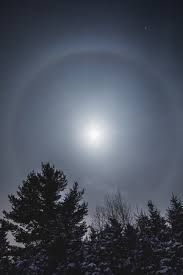 At Alapah Creek the first days of 1984 began with the entire region locked down in extreme cold. The kind of harsh cold you can taste in the air and easily hear with each exhalation. The incomprehensible black expanse above – studded with stars and the smear of the Milky Way, long meteor streaks and slow passing satellites – is undiminished by artificial light. The auroral spectacle was lively and tinged with an uncommon crimson blur.
At Alapah Creek the first days of 1984 began with the entire region locked down in extreme cold. The kind of harsh cold you can taste in the air and easily hear with each exhalation. The incomprehensible black expanse above – studded with stars and the smear of the Milky Way, long meteor streaks and slow passing satellites – is undiminished by artificial light. The auroral spectacle was lively and tinged with an uncommon crimson blur.
As a result of ground water seeps, shrinking stretches of open water purled along an overhanging bank on Alapah Creek a few hundred yards upstream from the cabin. Drab American Dippers bobbed and waded into the shallow riffles beneath hoar-frosted willows while a ground fog crept down drainage. At the cabin, chickadees, redpolls and grey jays swooped in to peck busily at leg bones hung for them. At night these small birds perched with fluffed feathers among the protective limbs of spruce trees, saving precious energy by slowing their tiny heart beats. Surely a few would not make it to the sunless dawn.
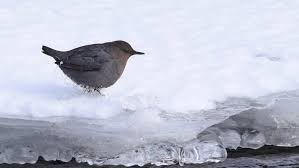 Nate reminded Sonny about the old practice of banking snow high along the outer walls of the cabin and then splashing water against the exposed upper logs to encase them in ice. They nailed a large blanket to the header of the door frame to hang as a curtain and a small one completely over the single frosted window. Nate cut up an old shirt to plug obvious air leaks, now well-frosted and visible, as 65F cabin air met minus 50F outside air. Steel nail and spike heads in the wall logs conducted the intense cold and built out in frost buttons along the log walls. Sonny entertained Nate with village tales of a few poorly prepared people, sometimes handicapped by addictions, who had resorted to burning outdoor fish racks and even furniture as fuel oil ran out or stopped flowing.
Nate reminded Sonny about the old practice of banking snow high along the outer walls of the cabin and then splashing water against the exposed upper logs to encase them in ice. They nailed a large blanket to the header of the door frame to hang as a curtain and a small one completely over the single frosted window. Nate cut up an old shirt to plug obvious air leaks, now well-frosted and visible, as 65F cabin air met minus 50F outside air. Steel nail and spike heads in the wall logs conducted the intense cold and built out in frost buttons along the log walls. Sonny entertained Nate with village tales of a few poorly prepared people, sometimes handicapped by addictions, who had resorted to burning outdoor fish racks and even furniture as fuel oil ran out or stopped flowing.
They employed all the tricks they knew to sustain warmth and slow the burning of their diminishing pile of dry wood. The door was opened as little as possible and closed quickly with a low wave of fog spilling along the cabin floor. The strips of coarse black bear hide tacked at the edges of the thick door helped. The men wore felt boot liners or down booties as everything on the floor level was freezing hard. They made time to fell dead standing spruce from the edge of the burn across the Kuuk to man-haul short lengths back to the cabin with a small wood sledge. During the long winter bush dwellers could never have too much firewood.
Nearly a week had passed since they had taken advantage of Lars’ offer to fly them back up to the Alapah. They had spent six or seven hours reheating the cabin as every log and object was holding the cold that had crept in to stay during their absence. The next day they got back to a full focus on extending trails and lines to trap fur. Nate headed downriver to check the traps they had tuned up and rebaited on their way to the heart-warming Christmas festivities.
Nate always had a lot on his mind, as was his way, his burden. In most important matters he was often conflicted, as though he were of two minds. His Mom had always reminded him he was a classic Gemini. Sometimes over-thinking events, often worrying unnecessarily. Now he was thinking mostly of the silver fox and two lynx they had dispatched and pulled from traps to carefully hang them several feet off the snow five days ago. He was anxious and hoped to find them unviolated by hungry creatures. With a little luck they would have some new catches, too.
He was reflecting on their familial holiday. Some of the pointed comments about the new park and doubts about his summer employment with the NPS, during the rollicking conversations at the Henderson’s, roiled in his sub-conscience. He felt defensive; he supported the big idea of a national park but was not enamored with the bureaucracy of the National Park Service. He also envied the lively spark of emotional attraction between Elsa and Sonny. He was happy for them but had long struggled with a corrosive loneliness exacerbated by time out in the woods. Perhaps he too would meet a new love and feel that emotional rejuvenation. Maybe in the spring while wandering around the University in Fairbanks, fresh keg nights at the Silver Fox Brewery or reconvening with the new summer park staff. He reminded himself that he had to try being more socially outgoing and share his humorous side.
While Nate headed off down the Kuuk River trail dragging the light pulke, Sonny had the more footloose task of making his way upriver. He was exhilarated to be on his own for the day, noting furbearer sign, going as far as he could get toward the Otter Creek cabin. Passing through new wilderness environs was always rejuvenating. Along the margin of the flats, perched somewhere in a large spruce, a Great Horned Owl startled feeding hares with its repetitive, muffled hoo hoodoo hoooo hoo. Sonny was awakening to the joys of learning so much more about winter birds.
There was no way to know how far the Texans had ventured or what they had been up to. Sonny knew from experience that a machinist could easily average 15 miles in an hour in such conditions. The miners had come buzzing by the cabin a couple of hours after Lars had powered his plane into the sky, loudly circling to waggle his wings. Someone fired a handgun as the Texans cruised by slowly, loudly talking and laughing. In the cabin Nate shook his head telling Sonny that “most of those guys were dropped on their heads as infants, or baked what brains they had in the miasma of diesel fumes while running mining equipment.” Nate knew that the shots were a clear statement of their disrespect for him and an untethered animosity toward government employees; especially the NPS. A bumper sticker in town proclaimed the NPS to be “blood-sucking Nazis.”
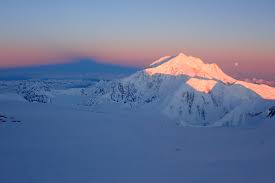 Following the braided snowmachine tracks upriver was easier than breaking trail and Sonny made good progress. Prominent cliffs punctuated steep slopes of grey green forest along the northern shore. Where the trail neared the edge of the opposite flats along a willowed bend, he scared up a Northern Goshawk that was mantled over a bloodied, half-eaten hare. He noticed the characteristic round, shallow tracks of large-pawed lynx wandered the edge of the willows. A large pack of wolves, over a dozen, prints still sharp edged where they joined the broken trail from the south after radiating out of an unnamed Creek like a skirmish line. They were probably trotting upriver twice as fast as he was moving; he scanned the distance but knew that he would have to get within 200 yards for any hope of a shot with a scopeless rifle. At least the slight downstream breeze would be in his favor.
Following the braided snowmachine tracks upriver was easier than breaking trail and Sonny made good progress. Prominent cliffs punctuated steep slopes of grey green forest along the northern shore. Where the trail neared the edge of the opposite flats along a willowed bend, he scared up a Northern Goshawk that was mantled over a bloodied, half-eaten hare. He noticed the characteristic round, shallow tracks of large-pawed lynx wandered the edge of the willows. A large pack of wolves, over a dozen, prints still sharp edged where they joined the broken trail from the south after radiating out of an unnamed Creek like a skirmish line. They were probably trotting upriver twice as fast as he was moving; he scanned the distance but knew that he would have to get within 200 yards for any hope of a shot with a scopeless rifle. At least the slight downstream breeze would be in his favor.
Shuffling steadily, a quiet clacking of his wooden snowshoe frames, he was maybe half way there; perhaps as much as seven miles of invigorating progress. The steady pace and silence quieted his mind but invariably his exuberant emotions turned his thoughts to Elsa. He tried to imagine her this morning. Sometimes he felt sure that they were thinking of one another simultaneously. It calmed him knowing that she was not so far away; as the raven flies anyway. Their spontaneously planned March tryst at the Ramparts seemed terribly distant. He knew he had to compartmentalize such dreamy thoughts to concentrate on the many tasks of his day-to-day existence and let the future unfold.
After another hour he stopped for a bit, stretching his back and legs, devouring a few of Ada’s cookies and gulping cold tea. Glancing at his watch and Nate’s annotated map, looking ahead at the unfamiliar terrain, he figured he could go another hour or so, before needing to turn back. For his own confidence he aimed to reach Otter Creek. No matter how far he got, the last few miles homeward would be by the light of his headlamp as needed. It was just a matter of energy and some grit. He shouldered his light daypack and slung his rifle, willing himself to pick up the pace a bit.
A long, low forested bend ahead showed several notches in the dark peaty soil, overhung by a green wave of sphagnum moss and leaning spruce. Nate’s annotated map showed a wetland behind the bend with Otter Creek just another quarter mile. The map had a pencil note “always extended open water” in Nate’s neat script, where groundwater from the muskeg kept the margin unfrozen. The machine trail was trending to the north bank, the cliff side of the river, so Sonny left it to angle across to replenish his water. River otter slides and tracks told the story of a family of the hardy, long-bodied, fish-eating mammals spending the core of the winter months there in order to find their way under the ice edge to hunt over-wintering fish. Or escape prowling wolves.
Sonny made a mental note to ask Nate what he knew about the ways of these incredible creatures. He knew that they were smart and difficult to trap, but little else. Nate’s handsome and durable fur hat with earflaps was sewn from otter fur and smoke-tanned moosehide. His own was a ratty old hand-me-down beaver hat from his Uncle Jimmy. He knew from his Mom, who had been an accomplished sewer of traditional clothing, that the water-dwelling mammals had the most durable fur for hard-used winter clothing.
As Sonny continued to ‘shoe along the edge of the narrow stretches of open water closing on the short trail into Otter Creek Cabin described by Nate, he halted abruptly looking ahead and sniffing the motionless air. He was sure he had picked up a faint whiff of wood smoke. He exclaimed out loud “how can that be?” and continued forward, looking around, thinking that he was imagining smoke since none was visible. No one was around so what could be the source? His mind reeled a bit. Maybe a nearby warming fire still smoldered since the Texans came through?
Curious and alert, Sonny marched toward the most prominent cleft ahead that promised to be the mouth of Otter Creek. It was fronted by a large gravel bar strewn with root balls and drift logs that had been stranded by spring high water. He found enough solid ice to cross and climb the rise of a few feet above the river surface. He stopped abruptly; once again smelling woodsmoke, this time slipping his rifle from its case. From the vantage of the elevated gravel bar he could see that a trail of some kind came out of the trees leaning out from the low bank and connected with looping snowmachine tracks and a stamped down area mid-river. Ravens he had seen earlier flew across the river, raucously cavorting with ease as if taunting him for his inability to fly.
He intersected the trail, not a moose trail, then paused before quietly entered the cut through a belt of young spruce. Under taller spruce thickly limbed to the ground, he noticed the shape of a canoe covered with boughs and a partial blanket of snow. Sonny knew that Nate had a canoe but it was at the Alapah. Then he remembered the story that Lars had overflown a furtive man lining a canoe up the Kuuk last summer. He could just see the small cabin and noticed a saw buck and orange swede saw; some cut rounds lying about. He moved slowly, unsure what to do. The cabin had been banked with snow, some rabbit carcasses hung near the low door, and a barely visible wisp of smoke curled out of the rusted pipe jutting from the roof. He gazed at the small pole cache that Nate told him about building in order to replace the old one built by Smoky the Swede that over the decades had rotted and collapsed. A sturdy ladder was leaning up to the platform and the door left wide open.
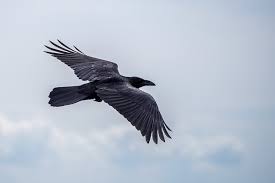 Sonny unbuckled his snowshoes and stepped out of them to creep over, rifle in hand, to a curtain of brush with a masked view of the door and tiny window. Breathing hard he crouched low and waited. Camp robbers flew in glide-pump dips from perches to land under the overhang in the front of the cabin, then back to perches. The local ravens grawk-grawwwwked and burbled from out on the river. Otherwise, no movement, no sounds.
Sonny unbuckled his snowshoes and stepped out of them to creep over, rifle in hand, to a curtain of brush with a masked view of the door and tiny window. Breathing hard he crouched low and waited. Camp robbers flew in glide-pump dips from perches to land under the overhang in the front of the cabin, then back to perches. The local ravens grawk-grawwwwked and burbled from out on the river. Otherwise, no movement, no sounds.
Growing impatient, Sonny ducked lower and hollered out “Hey the cabin” pausing a moment then “Hey anybody home”? This set off a chittering scolding from a nervous red squirrel. Ears cocked, listening intently there was nothing else. Again, adding more steel to his shout “Hey the cabin! Anybody around?” No human sounds other than his own breathing. Becoming stiff from kneeling, he stood and angled back to the trail, paused again, then quickly walked up to the side of the door and leaned against the log wall. Trying to control his breathing and focus his mind he surveyed the unexpected scene; a couple of canoe paddles, hanks of rope and several plastic buckets with lids. A pair of battered metal snowshoes leaned against the wall next to a rifle. Silence.
Sonny took a deep breath and rapped his gloved knuckles on the door. And again, harder. Nothing. He had a sense of time suspended. He leaned his own rifle then pushed firmly on the door, ducking head and shoulders in, he could barely see in the dim light. The air was as nearly as cold as outside. There was a slight metallic odor that he couldn’t place. He stepped in leaving the wide open, eyes adjusting slowly, unshouldering his daypack, nervously unzipping a side pouch and feeling for his headlamp without taking his eyes off the elongated mound on the bunk.
His gloved fingers fumbling with the switch, the filthy, strewn floor of the cabin was blasted in searing light that startled him. Instantly he lifted the beam to reveal a man’s bearded face; tangled brown hair, taut waxy skin, twisted mouth agape with a trickle of dried blood at the corner. Bloodied wooden grips of a handgun protruded from under the bag next to a box of cartridges. Voles noisily scurried beneath the bed as he stepped close, his own breath fogging in the light as he reluctantly lifted the edge of the bag hood. Poking at the dead man’s frigid cheek with a gloved finger, he stared in disbelief, then noticed small craters of flesh and an ear partially nibbled away. He was unable to gently pull the bag back further as he could see pooled blood froze it down. A lot of blood.
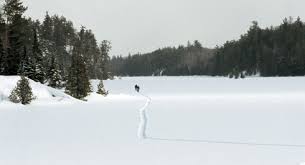 Recoiling, Sonny snatched up his pack and ducked out of the cabin, banging his head on the low frame, to cuss and suck in his first free breath in several minutes. He firmly pulled the door shut and hastily got back on the open river. Sonny moved with urgency; his mind now completely jangled with what he had just experienced. He reflexively looked back over his shoulder more than once.
Recoiling, Sonny snatched up his pack and ducked out of the cabin, banging his head on the low frame, to cuss and suck in his first free breath in several minutes. He firmly pulled the door shut and hastily got back on the open river. Sonny moved with urgency; his mind now completely jangled with what he had just experienced. He reflexively looked back over his shoulder more than once.
You can support the San Juan Update by doing business with our loyal advertisers, and by making a one-time contribution or a recurring donation.
Categories: Around Here, Freezer Burned



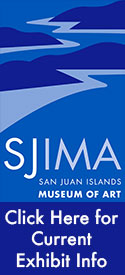






No comments yet. Be the first!
By submitting a comment you grant the San Juan Update a perpetual license to reproduce your words and name/web site in attribution. Inappropriate, irrelevant and contentious comments may not be published at an admin's discretion. Your email is used for verification purposes only, it will never be shared.